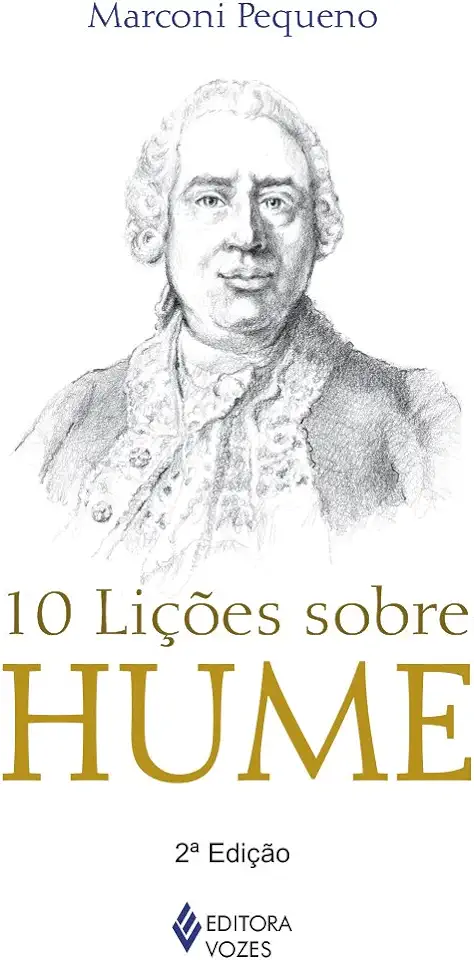
10 Lessons About Hume - Marconi Pequeno
10 Lessons About Hume: A Comprehensive Guide to the Life and Philosophy of David Hume
Introduction
David Hume, one of the most influential philosophers of the 18th century, left an indelible mark on the world of thought. His profound insights into human nature, knowledge, and morality continue to shape philosophical discourse to this day. In this comprehensive guide, Marconi Pequeno presents 10 essential lessons from Hume's philosophy, offering readers a deeper understanding of his groundbreaking ideas.
Lesson 1: The Empiricist Approach
Hume's philosophical framework is rooted in empiricism, the belief that all knowledge is derived from experience. He argues that we acquire knowledge through our senses, and that all our ideas are ultimately derived from sense impressions. This emphasis on experience as the foundation of knowledge sets Hume apart from many of his contemporaries and establishes the groundwork for his subsequent philosophical inquiries.
Lesson 2: The Mind as a Theatre of Perceptions
Hume's theory of mind is central to his philosophical system. He envisions the mind as a "theatre of perceptions," where all our thoughts, feelings, and experiences arise. Hume argues that the mind is not a passive recipient of information but rather an active processor that organizes and interprets sense impressions. This dynamic view of the mind challenges traditional notions of consciousness and opens up new avenues for understanding human cognition.
Lesson 3: The Nature of Causation
Hume's analysis of causation is one of his most significant contributions to philosophy. He argues that causation is not an objective feature of the world but rather a mental construct that we impose on our experiences. Hume's critique of causality undermines the traditional notion of cause and effect, leading to a deeper understanding of the relationship between events and our perception of them.
Lesson 4: The Problem of Induction
Closely tied to Hume's theory of causation is his discussion of the problem of induction. Hume argues that our belief in the uniformity of nature and our reliance on inductive reasoning are not based on logical necessity but rather on habit and custom. This skepticism towards inductive reasoning raises fundamental questions about the limits of human knowledge and the nature of scientific inquiry.
Lesson 5: The Self and Personal Identity
Hume's exploration of the self and personal identity challenges conventional notions of a unified and enduring self. He argues that the self is not a fixed entity but rather a collection of perceptions that are constantly changing. Hume's analysis of the self has profound implications for our understanding of consciousness, agency, and the nature of human existence.
Lesson 6: The Passions and Moral Sentiments
Hume's moral philosophy is rooted in the passions and sentiments rather than in abstract principles or divine commands. He argues that moral judgments are not based on reason alone but are influenced by our feelings and emotions. Hume's emphasis on the role of emotions in morality offers a unique perspective on ethical decision-making and the foundations of moral values.
Lesson 7: The Social Contract and Political Theory
Hume's political thought is centered around the concept of the social contract. He argues that political authority is legitimate only when it is based on the consent of the governed. Hume's social contract theory provides a framework for understanding the relationship between individuals and the state, and it has had a profound influence on modern political philosophy.
Lesson 8: The History of England and Historical Inquiry
Hume's historical writings, particularly his History of England, are considered masterpieces of historical scholarship. His approach to history emphasizes the role of human nature and social forces in shaping historical events. Hume's historical insights offer valuable lessons for understanding the complexities of human history and the dynamics of social change.
Lesson 9: The Dialogues Concerning Natural Religion
In his Dialogues Concerning Natural Religion, Hume engages in a philosophical dialogue exploring the existence of God and the nature of religious belief. Hume's skeptical arguments challenge traditional theistic proofs and raise profound questions about the limits of human reason in understanding the divine.
Lesson 10: Hume's Legacy and Influence
Hume's philosophical legacy is vast and multifaceted. His ideas have influenced countless thinkers across various disciplines, including philosophy, psychology, economics, and history. Hume's skepticism, empiricism, and emphasis on human experience have left an indelible mark on the intellectual landscape, shaping the course of philosophical thought for generations to come.
Conclusion
10 Lessons About Hume offers a comprehensive and engaging exploration of David Hume's profound philosophical insights. Marconi Pequeno's masterful presentation of Hume's ideas makes this book an essential resource for anyone seeking a deeper understanding of one of the most influential philosophers of all time. Whether you are a seasoned philosopher, a student of intellectual history, or simply someone curious about the nature of knowledge, morality, and human existence, this book is an invaluable addition to your library.
Enjoyed the summary? Discover all the details and take your reading to the next level — [click here to view the book on Amazon!]